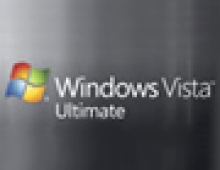
Vista Puts Aside PMP Restrictions For Now
Playback of Blu-Ray and HD DVD movies on PCs seems to be unaffected by the release of Windows Vista, since Vista's controversial "Protected Media Path" (PMP) environment has not yet been fully applied.
Currently, the available software solutions for reproduction of Blu-Ray and HD DVD movies on Vista are built to support Windows XP. As a result, until software developers release versions designed exclusively for Vista that support the PMP feature, no restrictions are imposed on the video and audio further to those applied under Windows XP.
Vista's "Protected Media Path" (PMP) is a copyright protection for "premium" content, as Microsoft describes. In simple words, it is a function that prevents "stealing" of video and audio as they flow from the main memory of a PC to the video and audio cards.
Microsoft sources have also confirmed that the software solutions built exclusively for Vista are very limited for now, saying that it will take a while until applications will support Vista's PMP.
In addition, the support for PMP has not been advanced, at least for the time being, for one more reason. PMP uses AES encryption to protect the data stream. The encrypted data would idealy be processed by the graphics card. However, even the high-end graphics cards available today do not support hardware AES processing. As a result, the demanding encryption has to be done by the PC's CPU. Hence a new task is added to the already overbuedened processor with the reproduction of High Definition video. So, as soon as the high-end graphics cards advance and also become affordable to the mainsrteam, the support for PMP is expected to be limited.
At least for now, there is little difference between the XP environment compared to Vista, when it comes to supporting next generation optical discs. The situation is expected to change soon, especially after the latest issues that have arisen concerning the "hacking" of AACS, used on Blu-ray/HD DVD.
Vista's "Protected Media Path" (PMP) is a copyright protection for "premium" content, as Microsoft describes. In simple words, it is a function that prevents "stealing" of video and audio as they flow from the main memory of a PC to the video and audio cards.
Microsoft sources have also confirmed that the software solutions built exclusively for Vista are very limited for now, saying that it will take a while until applications will support Vista's PMP.
In addition, the support for PMP has not been advanced, at least for the time being, for one more reason. PMP uses AES encryption to protect the data stream. The encrypted data would idealy be processed by the graphics card. However, even the high-end graphics cards available today do not support hardware AES processing. As a result, the demanding encryption has to be done by the PC's CPU. Hence a new task is added to the already overbuedened processor with the reproduction of High Definition video. So, as soon as the high-end graphics cards advance and also become affordable to the mainsrteam, the support for PMP is expected to be limited.
At least for now, there is little difference between the XP environment compared to Vista, when it comes to supporting next generation optical discs. The situation is expected to change soon, especially after the latest issues that have arisen concerning the "hacking" of AACS, used on Blu-ray/HD DVD.



















